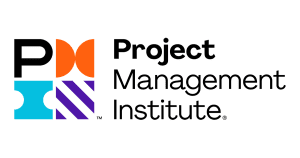
The overnight requirement for businesses to undergo transformation signalled the arrival of the Project Economy. It means organisations deliver value to stakeholders through successful completion of projects, delivery of products, and alignment to value streams. Projects are now vehicles to deliver complex change – such as that demonstrated in the UK’s pandemic response – in collaborative, problem-solving ways.
As a result, the country faces a soaring demand for project managers. Our research found that eight out of ten UK professionals now manage projects as part of their role. Despite 46% of those having never received any formal training – highlighting how invaluable the project management skillset is to the economy. Looking forward, we must now prepare to face emerging challenges and trends that will dictate project management in 2022.
Digital disruption
If 2021 was the year to discuss the implications of bringing AI into mainstream business, then 2022 will open doors for a whole range of further technologies to enter the conversation. Our research found that the integration of automation, blockchain, computer-aided design, data analytics, and virtual/augmented/mixed reality are all key priorities for project management professionals over the next five years. In addition, there is a continued commitment to welcoming AI and machine learning into the workplace.
While digitisation has been a solid workhorse, delivering steady improvements to operations, functions, and processes. The pace of digital transformation is also opening the door to more profound and strategic organisational change. The settling of permanent remote or hybrid working has the potential to hasten this and transform the global economy. The pace of digital transformation will, in turn, accelerate digital disruption, leading to radical changes across entire sectors. Furthermore, it threatens to turn traditional means of value creation on its head. This will mean, too, the evolution of our ‘relational’ skills – the ability to collaborate creatively, rapidly and in a goal-focused way with other people. And all the while being sensitive to differences and cognitive, emotive loads that are mounting.
Adapting to an ageing workforce
The number of people aged 65 years and over is expected to comprise 18.9% of the total UK population at the end of 2021. The highest proportion this age group has ever represented. This is an issue that will reverberate throughout UK business. It also poses a series of issues for organisations looking to stay agile and future-proof themselves amid talent shortages.
Experienced project management talent is retiring at an exceptional rate. 13 million professionals are set to retire before 2030 globally – and businesses are up against the clock to plug the gap. In Europe alone, talent shortages threaten to put £61.1 billion GDP at risk before 2030, according to our Talent Gap Report 2021. In short, the world needs 25 million new project management employees before 2030; we need to act fast.
Consequently, hiring next-generation project management talent and upskilling from within must be a key priority for businesses heading into 2022. In some incidences, this may require some organisational transformation to cultivate an environment that encourages learning and development. However, the short-term investment and effort can provide invaluable long-term gain.
In particular, the focus will be active learning, with measurable baselines and targeted competence levels. We will hear more about Enterprise Capability strategies that draw from corporate strategies and the unfolding socio-political imperatives such as the build-up of systemic trust and practical ethics.
The Great Resignation
Since the pandemic began, the UK has experienced a mass exodus of workers from their roles. The reasons for this are hotly debated, ranging from concerns over workload and a lack of career development to a lack of action taken by employers on climate and diversity issues. With project talent already at a premium, organisations are under pressure to re-engage their existing employees and save themselves from further talent shortage issues.
It should be made clear that this is not an issue tied to the pandemic, even if its arrival was the catalyst for more people to consider their future. Half of the British workers surveyed in September admitted they were likely to leave their job in the next six months. When asked why this was the case, the top responses included:
- Wanting a new career
- Experiencing burnout
- A lack of personal growth at current employers
- A lack of enjoyment for their role
There’s a fundamental shift underway in the relationship that people want to have with their employers. Businesses are up against the clock to secure their best talent before moving on. The pandemic has magnified the vulnerabilities in organisations’ working cultures and posed HR the challenge of balancing recruitment with retention.
Integrating climate goals into project execution
Writing this in the aftermath of COP 26, it would be remiss to discuss key considerations for 2022 without mentioning the climate crisis. Last year, we talked about how all the research is pointing in the same direction: more and faster, global warming. This year, it is time that we ask why? Despite government action and increasing emphasis on corporate social good, the situation is just getting worse.
The number of climate action projects is on the rise, but they’re not always successful. These projects entail vast complexities. From the sheer quantity of stakeholders and risks involved to integrating new technologies to effectively track progress – that form a substantial barrier between a project’s scope and tangible success. On top of this, ambitious net-zero targets set by business leaders place a spotlight on every project and process to contribute positively to the wider corporate mission. Integrating ESG principles overall into organisational ways of working into project leaders’ skillsets will be important in the coming year.
Ultimately, words and commitments can only be translated into action through projects led by capable project leaders and supported by motivated, agile teams. Without the right project management infrastructure and principles, organisations will continue to fail to make meaningful steps forward in their climate journey. For those that stay proactive in adapting to the Project Economy – be that through fostering upskilling, adopting gymnastic principles, or effectively integrating emerging technologies – the next 12 months can lay the foundations for a prosperous future.
If you would like to read more about how you can adopt and apply effective project management principles to your business, please visit our website at https://www.pmi.org.uk/.

As the world’s leading authority on project management, PMI empowers people to make ideas a reality. Through global advocacy, networking, collaboration, research, and education, PMI prepares organisations and individuals to work smarter in an ever-changing and dynamic world.
Building on a proud legacy dating to 1969, PMI is a “for-purpose” organisation working in nearly every country around the world to advance careers, strengthen organisational success, and enable changemakers with new skills and ways of working to maximize their impact. PMI offerings include globally recognised standards, certifications, online courses, thought leadership, tools, digital publications, and communities.
In the UK, PMI has a thriving, ever-growing community of over 3,000 members. It welcomes members from all industries, whether they are practicing Project Managers or purely interested in the project management profession. PMI holds events in locations throughout the UK and are active in promoting the project management profession to industry, government, and academic organisations alike.
























